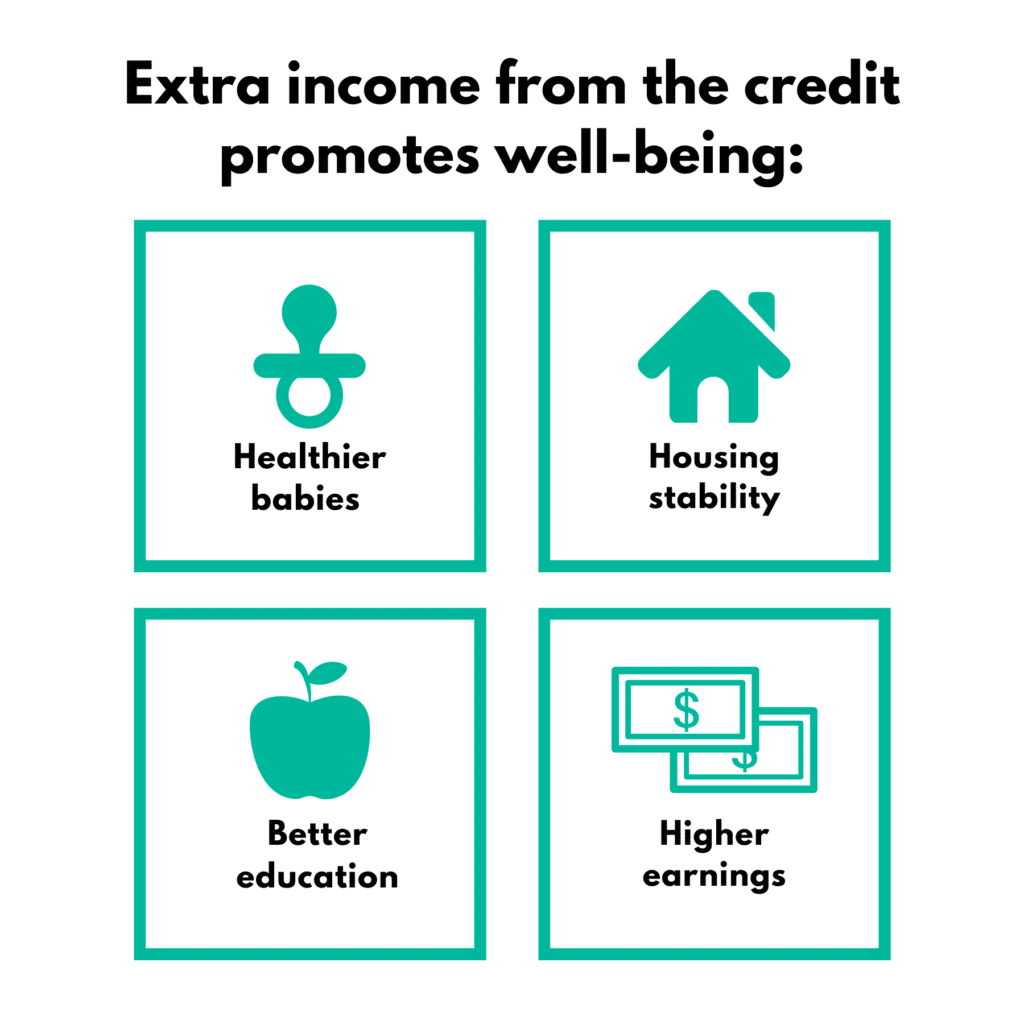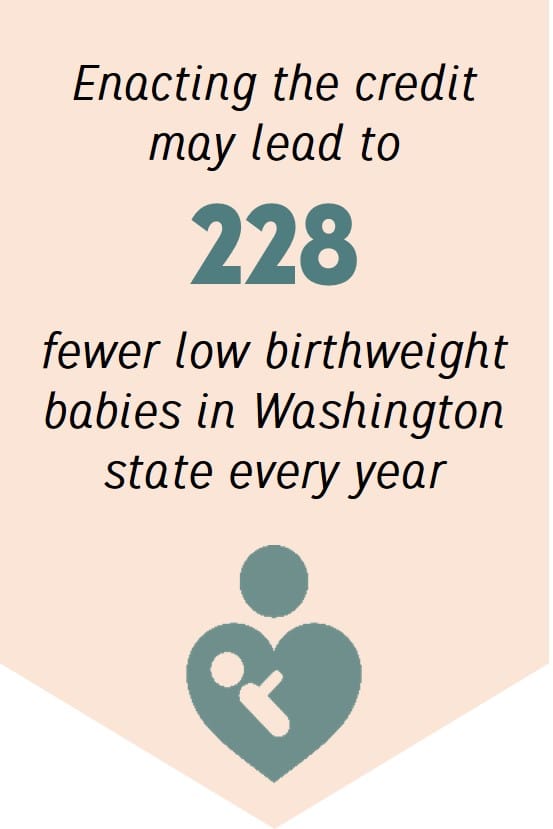This session, lawmakers have the opportunity to help lift up hardworking Washingtonians by enacting and funding a modern Working Families Tax Credit, our state version of the federal Earned Income Tax Credit (EITC). House Bill 1527 and Senate Bill 5810 would make our tax code more equitable by putting a meaningful amount of money – through a sales tax credit – back into the pockets of nearly one million households in Washington state. In addition to rebalancing our upside-down tax code, this proposed legislation would promote Washingtonians’ well-being and advance health equity by improving educational outcomes, promoting housing stability, and enhancing maternal and child health outcomes.

Health starts long before someone arrives at the doctor’s office. Half of a person’s health outcomes are determined by socioeconomic factors and the environment, so things like having a job and steady income, access to safe and affordable housing, and an education all impact how healthy people feel and how long they live. The Working Families Tax Credit would provide a boost to the incomes of Washingtonians and set more people on the path to improved health in the following ways:
- Improving educational outcomes: Education is one of the most important determinants of long-term health. Studies that have measured the impact of the federal EITC have found that a $1,000 increase in family income from the credit has been associated with higher math and reading scores, high school graduation rates, and college success for children of beneficiaries. Because education is foundational to long-term success in life, children in families who receive the EITC also earn more and have better employment outcomes long term. Overall, this means families who receive the federal EITC and state-level EITCs are more likely to move out of poverty, and their children will be less likely to experience poverty as adults.
- Alleviating housing cost burdens and promoting housing stability: Housing stability, affordability, and quality can all impact health outcomes. The Working Families Tax Credit can alleviate the housing cost burden for working families across the state. Almost 80 percent of the lowest-earning households in Washington state are cost-burdened, meaning they spend more than 30 percent of their income on housing costs. The Working Families Tax Credit would help families offset increasing housing costs with meaningful returns in income. This would improve overall housing stability and reduce the need for families to double up in one household.

The Working Families Tax Credit would be a step toward a healthier and more equitable Washington. It is an important policy for advancing tax equity and improving the well-being of Washingtonians. And in our state, the Working Families Tax Credit would also make our tax code more equitable by ensuring people with the lowest incomes are no longer paying such a high share of their incomes in state and local taxes compared to what the wealthiest Washingtonians pay.
Take action to support the Working Families Tax Credit.
